North Carolina A & T
Environmental Sustainability Report - 2000

Learning and Practicing Environmentally Sustainable Living are priorities at NC A&T State University. Meeting basic human needs now and in the future will require a major shift in the relationship of humans to the natural environment. That shift will involve all of society's institutions, including higher education.
The Waste Management Institute (WMI)
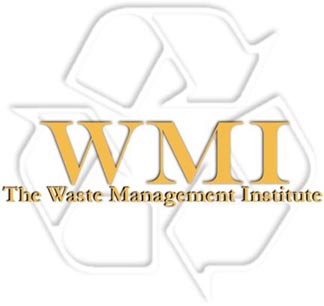
The Waste Management Institute (Interdisciplinary) was approved by the General Administration of the University of North Carolina in June 1994. The WMI is an academic support unit with environmental research and public service functions. The mission of the WMI is two-fold: (1) Enhance awareness and understanding of environmental and waste management issues and (2) Enhance collaborative environmental instruction, research, and outreach which are needed to improve the quality of Life and protect the environment. Waste Management is the KEY to "Innovation, Creativity, and Productivity".
The WMI administers a Certificate program in Waste Management for all academic majors of the University. Additionally, the WMI is a leader in funded collaborative environmental programs ($2 million for WMI infrastructure and $18 million for the inter-institutional (A&T, UNC-CH, NCSU, and UT-Austin) Science and Technology Center for Environmentally Responsible Solvents and Processes).
2000
Sustainability Initiatives at North Carolina A&T State University
Hazardous and Chemical Waste Disposal
North Carolina A&T State University is committed to providing a safe environment for its staff, students, and the public. The University is committed to safe handling and disposal of hazardous chemicals. Hazardous materials are monitored and handled by trained professionals. The University has a strong recycling program.
78
Students Receive Waste Management Certificate
Seventy-eight A&T graduates (B.A./B.S.) received the Waste Management Certificate at a special ceremony in December 1999 and May 2000. The graduates completed a minimum of 18 credit hours of environmental and waste management courses. The certificate highlights the training of A&T students in environmental and waste management issues and complements the undergraduate degree. The names and academic majors of the certificate participants are as follows:
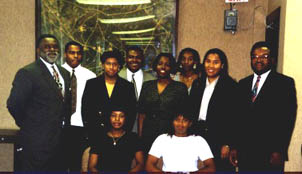
|
Herman A. Brunson |
Chemical Engineering |
| Fadrah Crowe | Industrial Engineering |
|
Lya S. Hatton |
Agriculture & BioSystems Engineering |
| Michael M. Jones | Industrial Engineering |
|
Tanya N. King |
Civil Engineering |
| Billy S. Lawrence | Industrial Engineering |
| Salvatare M. Lawrence | Industrial Engineering |
| Angela Y. Lewis | Lab Animal Science |
| Marcia C. McKoy | Occupational Safety & Health |
| Frederick L. Munford II | Architectural Engineering |
|
Brian B. Neal |
Occupational Safety & Health |
| Shawn A. Paylor | Occupational Safety & Health |
|
Lorie A. Richardson |
Occupational Safety & Health |
| Kimberly M. Sheffey | Environmental Science |
| Johnny E. Sigers | Architectural Engineering |
| Carranza L. Smith | Environmental Science |
| James R. Sullivan Jr. | Architectural Engineering |
| Tomeka L. Terry | Civil Engineering |
| Kaize A. Adams | Industrial & Systems Engineering |
| Shannon Z. Adams | Ag & BioSystems Engineering |
| Natalie D. Banks | Industrial & Systems Engineering |
| LaToya T. Baxter | Industrial & Systems Engineering |
| Brandy N. Beasley | Industrial & Systems Engineering |
| Camille H. Bivins | Architectural Engineering |
| Misty Blue | Industrial & Systems Engineering |
| Kelsi S. Bracmort | Agric. & BioSystems Engineering |
| Luther G. Brock, III | Industrial & Systems Engineering |
| Lakeeva M. Brooks | Civil & Environmental Engineering |
| Lenair L. Brooks | Industrial & Systems Engineering |
| Shekeitha L. Burnette | Lab Animal Science |
| Russell J. Busick | Industrial & Systems Engineering |
| Michael J. Carter Jr. | Agricultural Economics |
| Jarin A . Collins | Occupational Safety & Health |
|
Dougette A. Cooper |
Industrial & Systems Engineering |
| Harry B. Draughn | Occupational Safety & Health |
| Adrian S. Durham | Architectural Engineering |
| Michael K. Elliot | Agricultural Economics |
| Timothy J. Foster | Earth & Environmental Science |
| Kevin A. Frazier | Industrial & Systems Engineering |
| Kristopher D. Garner | Industrial & Systems Engineering |
| Charla L. Gaskins | Civil & Environmental Engineering |
| Alvin S. Gilmore | Architectural Engineering |
| Valerie J. Guthrie | Industrial & Systems Engineering |
| Adrienne Hall | Chemical Engineering |
| Jewelyn Harrington | Industrial & Systems Engineering |
| Charlie Harris | Chemical Engineering |
| Michael Holland | Industrial & Systems Engineering |
| Felicia R. Ivey | Occupational Safety & Health |
| Crystal D. Jacobs | Industrial & Systems Engineering |
|
Michael D. Irwin |
Civil & Environmental Engineering |
| Alicia V. Lawson | Lab Animal Science |
| Danielle D. Lyons | Agri. BioSystems Engineering |
| Raushanah R. Maxey | Lab Animal Science |
| Sheranda M. McCaskill | Industrial & Systems Engineering |
| Mesha L. McDaniels | Industrial & Systems Engineering |
| Victor L. McLean | Lab Animal Science |
| Ernest A. Mitchell | Industrial & Systems Engineering |
| Valerie E. Moore | Industrial & Systems Engineering |
| Richmond C. Okoro | Occupational Safety & Health |
| Ebele A. Oraefo | Psychology |
| Arshena Overton | Occupational Safety & Health |
| Regina E. Page | Civil & Environmental Engineering |
| Chuck H. Peraja | Industrial & Systems Engineering |
| Carla L. Perry | Lab Animal Science |
| Jamaris A. Pitts | Occupational Safety & Health |
| Natoya L. Powell | Agricultural Education |
| Kimberly J. Simpson | Earth & Envir. Science |
| Shakira D. Sumpter | Agricultural & BioSystems Engineering |
| Brian R. Shore | Landscape Architecture |
|
Brent Y. Stewart |
Animal Science |
| Mark A. Terrell | Architectural Engineering |
| Samuel C. Tinger | Landscape Architecture |
| Tameka A. Tolliver | Lab Animal Science |
| Kevin J. Ward | Industrial Engineering |
| Lois D. Waters | Agric. & BioSystems Engineering |
| Vicky E. Watkins | Architectural Engineering |
| Aaron J. White | Occupational Safety & Health |
| Toni R. Wyche | Agric. & BioSystems Engineering |
Partnership
with United States Environmental Protection Agency
Ten Students Selected for Summer 2000 Internship at USEPA, RTP
The following students were participants of the summer 2000 internship at USEPA:
| Nikita Echols (Applied Mathematics) |
| Shalina France (Chemistry) |
|
Shanta Harper (Education and Psychology) |
| Angela Hines (Earth and Environmental Science) |
| Shantoria Kearney (Child Development) |
| Decatur McMillan (Computer Science) |
| Bryan Mitchell (Agricultural and BioSystems Engineering) |
| Tory Nesbitt (Applied Mathematics) |
| Ayinde Wagner-Simpson (Earth and Environmental Science) |
|
Torri Wyche (Agricultural and BioSystems Engineering) |
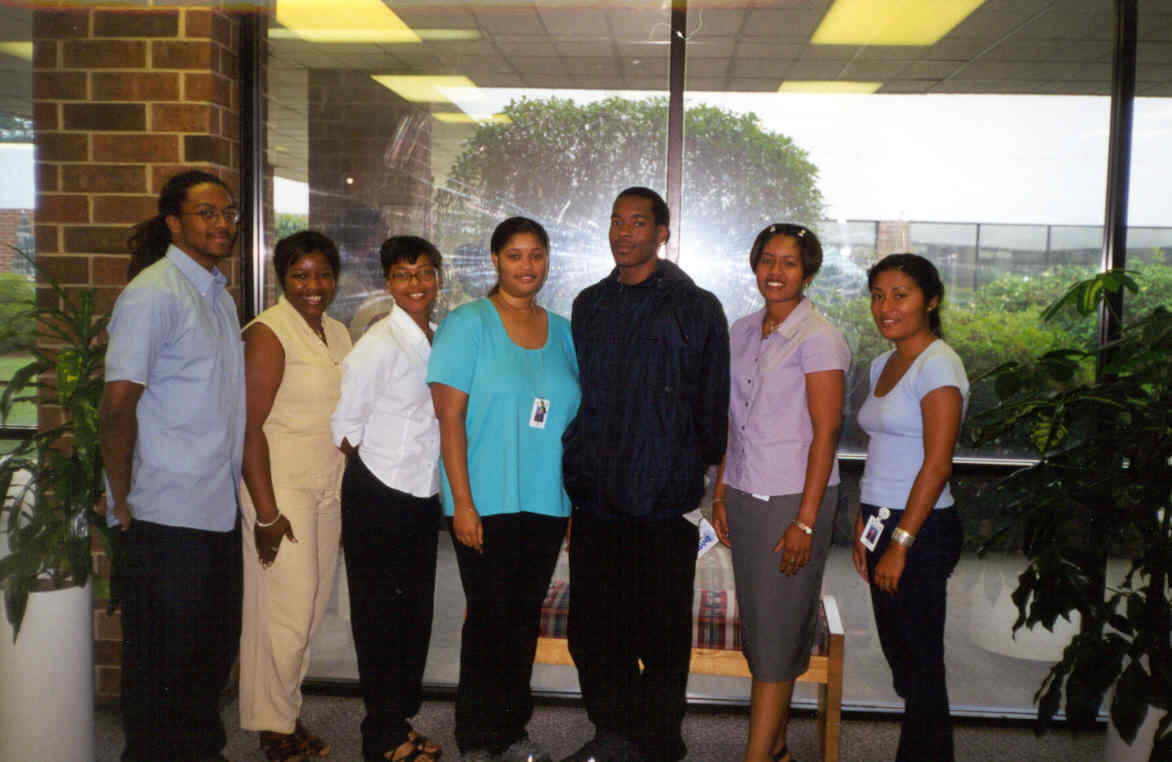
US EPA’s Richard Crume Brings Excitement to A&T's Air Pollution Course
Richard V. Crume, senior project officer with the United States Environmental Protection Agency, taught a senior and graduate level science, engineering, and technology air pollution assessment and control course at A&T in spring 2000. Crume involved students in discussion of practical and current air quality issues.
US
EPA Establishes
Air Quality Learning Center (AQLC) at A&T
USEPA has established an Air Quality Learning Center at A&T . The purpose of the center is to enhance A&T ‘s waste management resources. The Air Quality Learning Center serves as a resource for University faculty, staff, and students needing information on air pollution assessment and control. Additionally, materials in the Center are available to the public and serves as a valuable resource on air quality for Central North Carolina. It is expected that local air, environmental, and planning officials will find the Center a convenient source of training materials and technical information.
Partnership with United States Department of Energy, Savannah River Site
The Waste Management Institute Receives $60,552 for Groundwater Contamination Studies
The Waste Management Institute at A&T was recently awarded $60,552 by the US Department of Energy, Savannah River Site through the Education, Research and Development Association of Georgia Universities. The Institute will analyze the impact of groundwater pollution on people and the environment.
Partnership With North Carolina Public Schools
Pre-College Environmental Outreach Workshop
The Waste Management Institute conducted an Environmental Technology and Waste Management Workshop for 80 pre-college students (high school juniors and seniors) on June 23, 2000. The workshop covered a wide range of environmental issues.
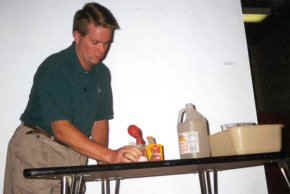 |
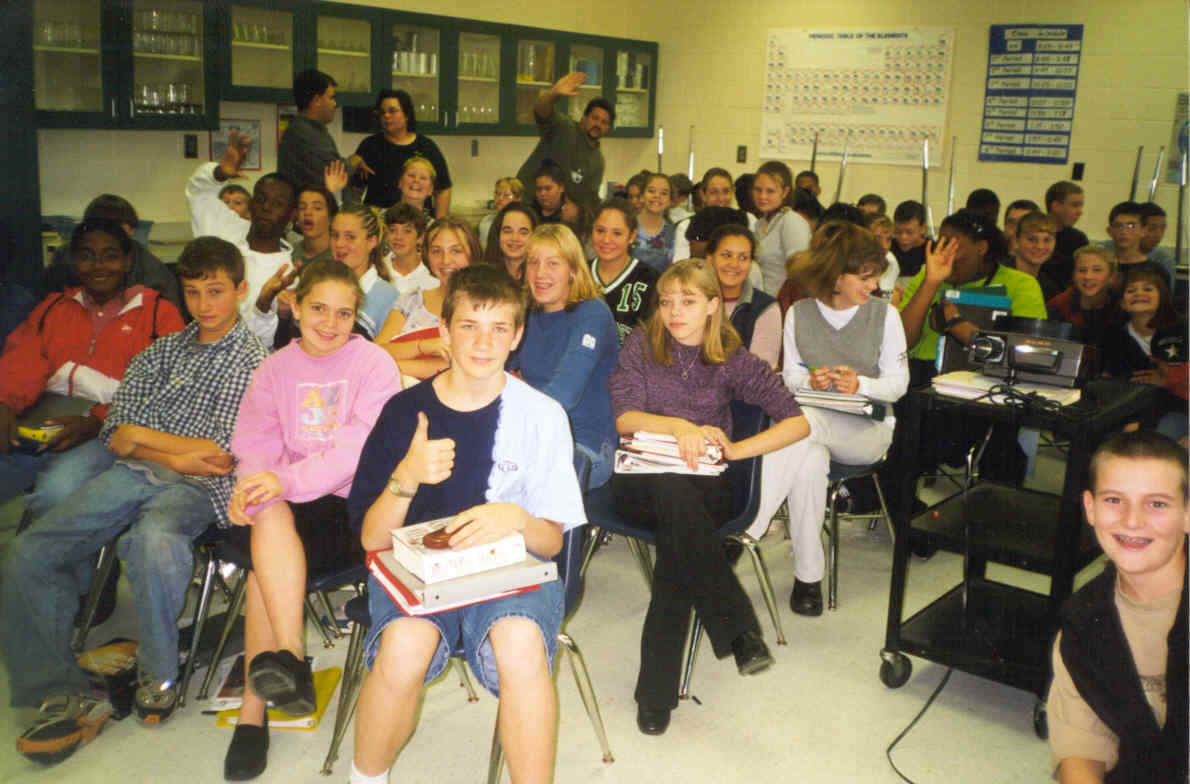 |
Partnership
with Guilford County
Earth Day 2000, Guilford County
EARTH DAY 2000, the largest environmental event in human history, was celebrated at the Festival Park in downtown Greensboro on Saturday, April 15, 2000 and on A&T’s campus throughout the week of April 17-22. This year’s event was particularly meaningful as we celebrated the installation of Dr. James C. Renick as the ninth Chancellor of North Carolina A&T State University. EARTH DAY 2000 was an opportunity to focus more attention on the most urgent environmental perils of our time: clean air, clean water, waste disposal, pollution and global warming. EARTH DAY 2000 offered many opportunities for service and partnerships both at North Carolina A&T and in the Guilford County community. Everyone was encouraged to infuse environmental themes and issues in their work, as well as to become increasingly aware of the environmental issues that impact our daily lives.
Partnership
with Piedmont Council of Governments
Upper
Cape Fear River Basin Partnership
North Carolina A&T State University is represented on the Upper Cape Fear River Basin Technical Committee by Dr. Godfrey A. Uzochukwu, Director of WMI. The Cape Fear River Assembly was founded 25 years ago and has grown to a membership of over 400 with a 34 member Board of Directors. The Assembly membership and the Board are made up of representatives from throughout the Cape Fear River Basin with varying interests including: environmental and conservation organizations, academia, small business and industry, government (local, state and federal), and the general public. There is a basin wide commitment. Discussions and remediation of impaired streams (East Fork of Deep River – source of High Point’s drinking water and Greensboro’s N. Buffalo Creek) in Guilford County are in progress.
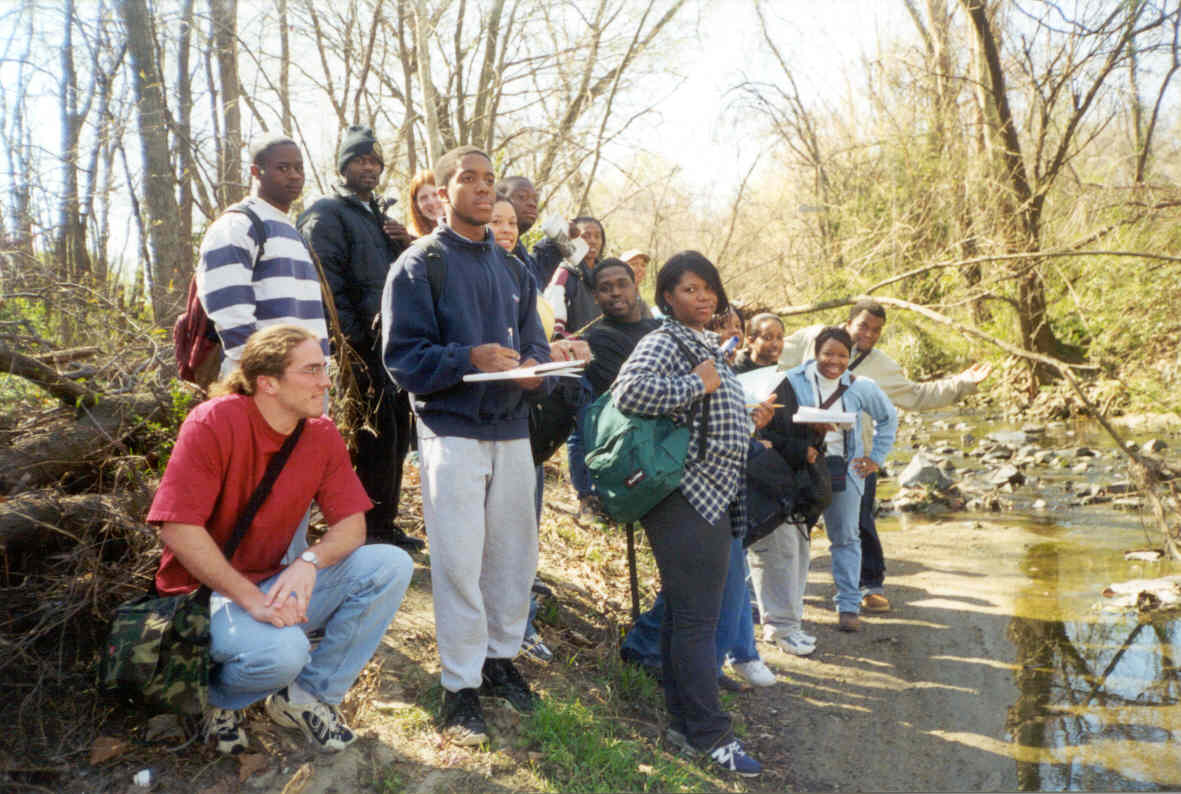
NC
A&T Sustainability
Team
The WMI hereby acknowledges contributions made by the following advisory committee/sustainability team members:
|
Tracy Hanner |
Animal Science |
| Godfrey Ejimakor | Agricultural Economics, Education and Rural Sociology |
| Ron Bailey | Architectural Engineering |
| Japhet Nkonge |
Business Administration |
| Kimberly R. McNeil | Business Administration |
| Franklin King | Chemical Engineering |
| Kenneth Roberts | Chemical Engineering |
| Abdul Mohammed | Chemistry |
| Shoou-Yuh Chang | Civil and Environmental Engineering |
| Emmanuel Nzewi | Civil and Environmental Engineering |
| Robert Pyle | Construction Management and Safety |
| Michael Simmons | Economics |
| Ward Collis | Electrical Engineering |
| Peter Meyers | History |
| Herbert Nwankwo | Industrial Engineering |
| Eui Park | Industrial Engineering |
| Alexander Kurepa | Mathematics |
| Godrey Gayle | Natural Resources |
| G.B.Reddy | Natural Resources |
| Caesar Jackson | Physics |
| George Robinson | Psychology |
| Minnie B. Mayes | Office of International Programs |
| Godfrey A. Uzochukwu | Sustainability Officer |
| Mary Barbee | Physical Plant Recycling |
| Horlin Carter | OSHA Director |
Contact:
DR. GODFREY UZOCHUKWU
NC A&T State University
1601 E Market Street, Carver Hall
Annex
Greensboro, NC 27411
336-334-7030